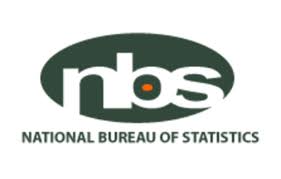
The National Bureau of Statistics has reaffirmed its commitment to providing credible, high-quality, and accessible data to support evidence-based policymaking aimed at driving sustainable national development and transformational change.
The Statistician-General of the Federation and Chief Executive Officer of the NBS, Adeyemi Adeniran, made this known on Monday in Abuja during the 2025 World Statistics Day celebration event.
Adeniran noted that the world was undergoing rapid socioeconomic transformation, digital evolution, climate change, and shifting global dynamics, stressing that data remained central to navigating today’s increasingly complex and interconnected challenges effectively.
“To address these evolving challenges, we require credible, timely, high-quality data presented in usable formats, produced sustainably to inform vital decisions at all levels of society,” Adeniran said.
He pointed to two recent milestones by the bureau: the rebasing of both the Gross Domestic Product and the Consumer Price Index, which enhanced the reliability of national statistical reporting.
Adeniran said those exercises were essential to improving data accuracy, aligning statistics with current realities, and enabling policymakers to make informed economic, social, and developmental decisions that responded to national priorities.
“The GDP rebasing, concluded in July 2025, shifted the base year from 2010 to 2019 to better capture Nigeria’s present economic structure and the evolution of its productive sectors and industries.”
According to him, the GDP exercise included emerging sectors like the digital economy, creative industries, food economy, pension management, and informal markets, providing a more comprehensive view of Nigeria’s evolving economic landscape.
“The rebasing gives us clearer insights into real economic performance and lays a stronger foundation for data-informed planning, investment, and policymaking,” Adeniran said.
On the CPI rebasing, he said the base year changed from 2009 to 2024, while the consumer basket expanded from 740 to more than 930 items, reflecting changes in household consumption behaviour.
He explained that this would improve the accuracy of inflation measurements and how price changes affected Nigerian households, particularly the most vulnerable, while strengthening economic and fiscal policymaking efforts.



